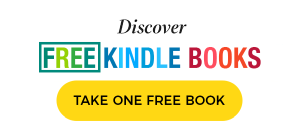9 Wonder Words by Lucy Turner
A Language for Living Well—Even When All Hell Breaks Loose
Travel with a United Nations civil servant to discover life-improving words from exotic and exciting places all over the planet.
Words Change How You Think, Feel, Act, and Even What You See
Neuroscience shows that words from different languages can re-wire your brain, helping you to create a positive mindset. Some words help you feel happy, see beauty, believe in a better world, and your own power to create it. These are the positive words you will find in this book: global words of wellness from ancient and modern languages all over the world.
Travel across the world to discover them with Lucy Turner: a United Nations civil servant who lived and worked on five continents. Through language-learning, she found words to feel hopeful, confident, and calm, no matter what. She shares these positive mindset words with you in this book, through fun short stories and ground-breaking science. 9 Wonder Words will do more than make you smile. It will give you a language for loving life, and your own power to make it even better.
In 9 Wonder Words, you will discover:
- A word to improve your leadership and resilience in times of crisis.
- A word to increase your creativity and performance.
- A word to give you access to the stress-reducing benefits of gratitude.
- A word to feel good now, no matter what circumstances you are in.
- An ancient Indian word to give you a sense that you have more time.
- Words from Southern Africa and the Pacific to help you believe in, and achieve, your biggest goals.
- Lessons from West Africa and South Asia on how language promotes peace and progress.
- Lessons from the Middle East on how to use your voice to increase your income and access to opportunities.
- Global research showing how language created our species, accelerates evolution and can regenerate our planet and societies – beginning with you.
Most of all, you’ll laugh your way across the planet with a woman who can reveal to you the beauty of some of the world’s most remote and extraordinary places.
Excerpt from 9 Wonder Words © Copyright 2022 Lucy Turner
Introduction
As an international civil servant at the United Nations Headquarters in New York City after more than ten years in Africa, Asia, the Middle East, and the Pacific, I discovered three things I will share with you in 9 Wonder Words: A Language for Living Well— Even When All Hell Breaks Loose. First, well I’ll be damned! Living in places ravaged by war, poverty, tyranny, discrimination, division, and disease can be tough. Twenty hours a day without electricity or heating in the Himalayas. Shivering under yak wool blankets at -37 degrees in a home with no insulation. Dining by candlelight on dried fruit and nuts riddled with curious-looking holes. Sweating out a heat wave with no air conditioning. Lying restless in a bed full of bugs that bit me as rodents scuttled around it. “Bathing” for weeks with the soap-dabbed edge of a towel dipped in a bucket containing an inch of water. Commuting by convoy through streets lined by soldiers and protesters. Rescheduling assignments because my accommodation was bombed out of existence while I was en route. Malaria, typhoid, and a mystery parasite that left my skeletal body contorted in excruciating pain in the dead of night as monsoon rains hammered hot red earth—yes, my field work with the UN has not been as glamorous as my Mum made it out to be at ladies’ lunches—though I’m glad she got a kick out of it.
Second, learning foreign languages makes life easier. I did it partly out of respect, and partly to get from A to B and pick up some oranges on the way. And it worked. I got home, I got snacks, and I learned cute ways to say, “I’m not going anywhere, sunshine—see you tomorrow!” to hecklers yelling, “White girl! Go home!” as I was on my way to work.
I also got answers to my many questions: Why do people here yell so much?
Why do motorists push pedestrians off the road? Why is there a live crocodile in this office?
These folks haven’t eaten for two days, and woke up with sewage on their sheets: why are they smiling so much?
How come there is light in the slum when there is no generator or fuel or power in the grid?
Why is this clearly very poor woman I’ve never met before giving me sweet, warm, soft bread from a hole in the ground?
These folks sleep on a bench at the side of the road, breathe polluted air, drink dirty water, and eat no more than a few bites of food every few days—why are they talking about how grateful they are and saying, “Ah di do jis fayn tenki, no get no problem”? (I’m doing just fine, thank you, I don’t have any problems.)
Me? I can see plenty of problems with this situation. Until . . .
Until, through specific words, I gained access to different perspectives; perspectives through which I could look at the same scene and agree, “No get no problem.”
I was in more stressful, chaotic, and unpleasant environments than ever; feeling more relaxed, peaceful, and happier than ever. That was how learning local languages truly made my life easier, because I acquired words that served as “medicine for the mind.” Their effect was to ease my irritation over . . . oh, everything, and enable me to notice and enjoy new forms of beauty and pleasure. This gave me new strength, and the ability to do more, achieve more, and enjoy more—no matter how challenging the situation may seem to be. Without yet knowing it, I had acquired a gift: a newfound resilience and ability to access an inner reserve of peace and strength.
My first steps back into the world of soft toilet paper and functioning plumbing systems was the security line at Heathrow airport, where people were having a meltdown about the waiting time. After witnessing plenty more first-world problems, such as, “Oh no, they’ve sold out of blueberry flaxseed muffins!!,” I, who also love those muffins, realized that other people could benefit from the resilience I had acquired through language.
Third, language changes the way people think, see, act, and behave. A few years later, at UN headquarters in New York City, I found an unexpected benefit of being identified as the “native speaker” who must therefore do writing tasks for the team alongside my main job. Since the business of bureaucracy is largely based on writing (briefing notes, speeches, reports, letters, code cables, invitations, and such) there was plenty of this additional work. With “Tell God, tenki, no get no problem” (Tell God, thank you, I don’t have any problems) and “alhamdulillah” (Thank God; thank God for this problem because a good thing will come of it) buzzing through my brain, I didn’t complain. And sure enough, I discovered an unexpected blessing in the “burden” of being the team writer, a new understanding of the power of language.
To write and to speak is to put ideas in people’s minds, introduce new thoughts to their brains, add new perspectives to their worldview. And if the writing is concise enough (single words, short phrases) and sufficiently compelling (human stories, statistics) people are led to not only understand but to care about those new ideas, possibilities, and their own power to create change. As colleagues in other agencies (who honestly had not always been very excited to work together) began to behave and express themselves in a slightly different way that suggested an appreciation of the ideas presented to them in speeches and reports, briefing notes, and code cables, I realized that maybe words could be more than just “medicine for the mind.” Perhaps they could even be medicine for our world, and the institutions that serve it.
Huh?! But we need projects and programs, laws and policies, evidence-based formulas and formal interventions to create meaningful change, not mere sounds and scribbles!
Knowing this, still, my curiosity led me to look into the data and discover this one final thing about language: the idea that words can change the way we see, think, feel, act, and respond to other people and situations is proven in countless studies from numerous prestigious institutions. And of course, the mantra-chanting monks, speech-making politicians, and keyword-spinning marketing gurus knew this all along. You and I may not all be scientists, spiritually enlightened, or elected to public office, but we like to know about what works to make life better. I wrote this book for us.
9 Wonder Words is a way for me to share the gifts of a life of languages. I grew up in a family in which three were spoken: English, Welsh, and Gaelic. I learned four more at school (Latin, French, Russian, and Italian) before learning countless more in a career spanning thirteen years and five continents, so far.
I wrote 9 Wonder Words to help protect the rapidly depleting collective wisdom of humanity, held in more than 7,000 languages. I wrote it to help us adapt to diversity through words that promote intercultural understanding and appreciation. I wrote it because people’s self-worth is so often bound to the respect accorded to their language; and by honoring diverse languages, we honor diverse peoples. Most of all, I wrote it to make people smile—and give them tools to keep smiling after they have closed the cover to crack on with Tuesday.
At the United Nations, I find ways for people affected by conflict and poverty to communicate with decision-makers, so they can get the resources and respect they need to flourish. In Liberia, Sierra Leone, Timor Leste, Nepal, Palestine, San Quentin State Prison, and now at HQ, I have seen how helping people speak and be heard promotes peace, empowerment, empathy, and measurable improvements in their lives and institutions.
The following chapters present some words of wisdom and wellness from languages around the world, which I discovered in places I visited and became immersed in for a time. I’m delighted to share them with you. Thank you.
My profession is online marketing and development (10+ years experience), check my latest mobile app called Upcoming or my Chrome extensions for ChatGPT. But my real passion is reading books both fiction and non-fiction. I have several favorite authors like James Redfield or Daniel Keyes. If I read a book I always want to find the best part of it, every book has its unique value.




![Braving The Accident Jungle [Second Edition]: Your Guide to Avoiding Predatory Insurance Companies](https://joelbooks.com/wp-content/uploads/2022/12/Braving-web-660x420.jpg)


